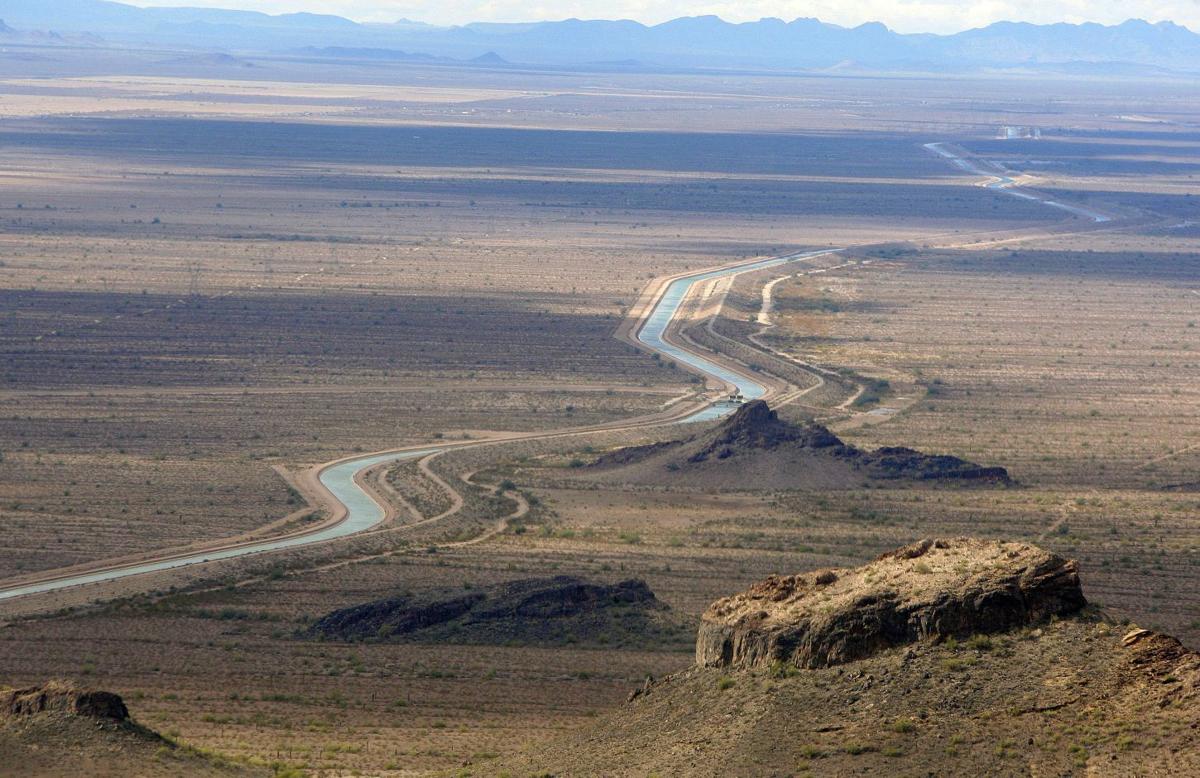The agency that operates the CAP must look elsewhere for water for future suburban growth, now that it’s killed a proposed $34 million deal to buy land and water rights in rural Mohave County along the Colorado River.
Officials of the Central Arizona Water Conservation District aren’t ruling out the possibility of trying to acquire water rights from Mohave or other rural areas on a shorter-term basis. Most likely, the district would pay to temporarily fallow farmland to get water for new subdivisions in the Tucson and Phoenix areas.
The district’s governing board voted unanimously Thursday to halt efforts to purchase seven farms totaling 2,203 acres and nearly 13,900 acre-feet of Colorado River water rights that exist in the Bullhead City area near the river. The farms are owned by two New York City-based hedge funds.
The proposed deal, in the works since October, sparked vocal and emotional opposition from Mohave County officials and other residents who feared it would bleed their economy and stifle future growth. Mohave County has about 207,000 people, compared to 5.7 million in the three counties served by the Central Arizona Project: Pima, Maricopa and Pinal.
CAP officials said they would have mitigated at least some of the impacts to the rural community by setting up a fallowing program to compensate farmers who give up water.
“The land sale is off the table, but I believe the search for water is still present,” said Lois Wakimoto, a Mohave County supervisor who led the charge against the CAP purchase. “We won the first skirmish. I don’t think the battle is over.
“It’s the water we have and it’s also water for our future growth,” Wakimoto said in explaining Mohave’s opposition.
Wakimoto and other county officials had rounded up opposition to the deal at town halls held at least monthly since January in Lake Havasu City, Kingman and Bullhead City. Local chambers of commerce and realtors joined the fight.
Lack of community support was a factor behind the CAP board’s decision not to pursue the $34 million deal, said Jim Holway, the water district board’s vice chairman. Various board members have also raised concerns about whether they wanted to have the district own land, and whether the land price was “appropriately assigned,” he said.
“The most critical thing” was that an irrigation district in the area decided not to allow a fallowing program longer than 30 to 35 years, Holway said. The Mohave Valley Irrigation and Drainage District controls the allocations of Colorado River water in the area, and it has a longstanding policy of not allowing that river water to be transferred out of the county.
“That really raises questions of why you would purchase the land, when there’s no guarantee of what would happen the next year,” after 30 to 35 years ran out, Holway said.
Mohave irrigation district officials didn’t want a fallowing program lasting more than 30 years because that would start to look like a permanent water transfer, said Perry Muscelli, a district board member.
“We were interested and still interested in a fallowing program. It’s a benefit to farms economically and a benefit to the soil which needs to rest. But we’re not trying to transfer our water rights to Phoenix,” Muscelli said.
At Thursday’s CAP board meeting, county Supervisor Wakimoto said, “We feel it is Mohave County’s time to grow. We feel this water will enable us to do this. We hope you are able to find water ... in the three counties you represent.”
CAP board members made it clear their quest for additional water is far from over. Chairwoman Lisa Atkins reminded members that the water district’s sister agency — the Central Arizona Groundwater Replenishment District — is required by state law to acquire renewable water supplies to replenish aquifers that are pumped for future growth.
The replenishment district has enough water to serve current member subdivisions in SaddleBrooke, Green Valley and other unincorporated areas in Pima County and Phoenix suburbs. But it’s far short of having enough water rights signed up to serve all future growth that’s expected to happen there.
While the Central Arizona replenishment district was going through its "due diligence" efforts to determine if the Mohave water deal was feasible, it and the Mohave irrigation district have made progress in developing a better understanding of what a fallowing program could look like without an agreement in place for it to buy land and water rights outright, the district said in a statement. The replenishment district "will continue to be a collaborative and responsible partner in pursuing its water supply acquisition program," the district said.
Since 2013, the CAP water district has been on record saying that when it considers buying rural water rights for growth, it would consider the purchases' impacts on local communities and would negotiate with local irrigation districts, board chairwoman Atkins said. In the Mohave Valley case, "the record reflects that we held firm to both of these principles," she said.





